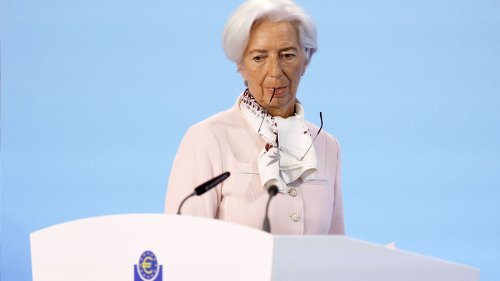So when will Europe's interest rates come down?
If you're getting fed up with ever-rising interest rates in the eurozone, you're not alone. Last week, the European Central Bank hiked rates for the 10th time in a row. So, now what? ING’s Carsten Brzeski has some answers.

They did it again! Europe’s central bank, the ECB, raised interest rates from 3.75% to 4% in September; they’ve never been this high. It’s the most aggressive hiking cycle - as we economists like to call it - the eurozone has ever seen.
So why another repeat performance? Even though there are warning signs almost everywhere that the economy is worsening, the bank is still more worried about inflation. It's looked into its crystal ball, and that's telling it inflation, currently running at more than five percent, will only drop below two percent at the end of 2025.
That’s far too late for the ECB. It’s why it’s said, ‘OK, let’s do another rate hike now and then keep things where they are’. And that last bit’s key. The bank told us that this current level should be sufficient to bring down inflation over the coming couple of years. So it’s clear to most of us that we’ve hit peak interest rates in Europe.
Higher interest rates are often used to ‘cool down’ the economy. If you have to pay more money in interest payments on a loan or mortgage, you’ve got less cash to spend elsewhere, which should help bring prices down. And that’s true of individuals, companies and governments. But it's tough on many people who are already struggling to pay increasing food and fuel bills. And for all central banks, it's a tricky balancing act because if you cool down the economy too much, you can actually put it straight into the deep freeze, and we're back to the dreaded 'R-word: recession.
We're particularly worried about Germany, often called the powerhouse of Europe. Its industries are producing seven percent less than before the Covid pandemic. Sales in shops as well as exports are all dropping. The risk of recession there, spreading across Europe and beyond, is once again high. And if things get really bad and inflation comes down quicker than expected, we might see interest rates coming down sooner rather than later.
Get more ING views on the global economy on our THINK website at www.ing.com/THINK
